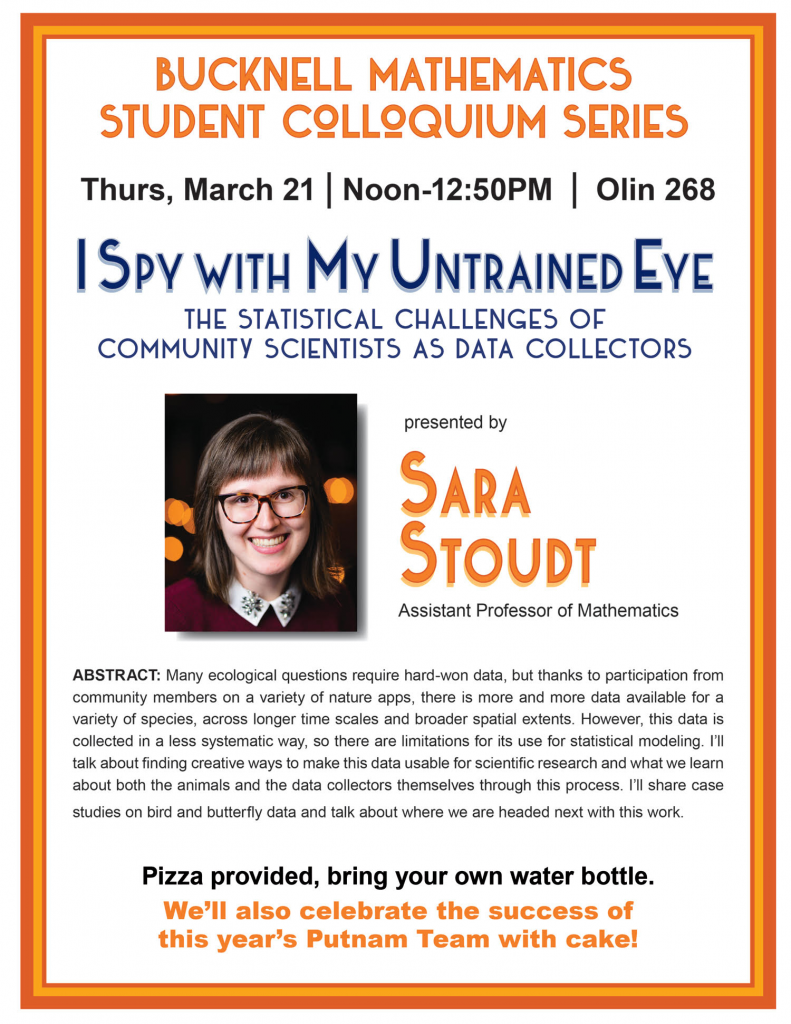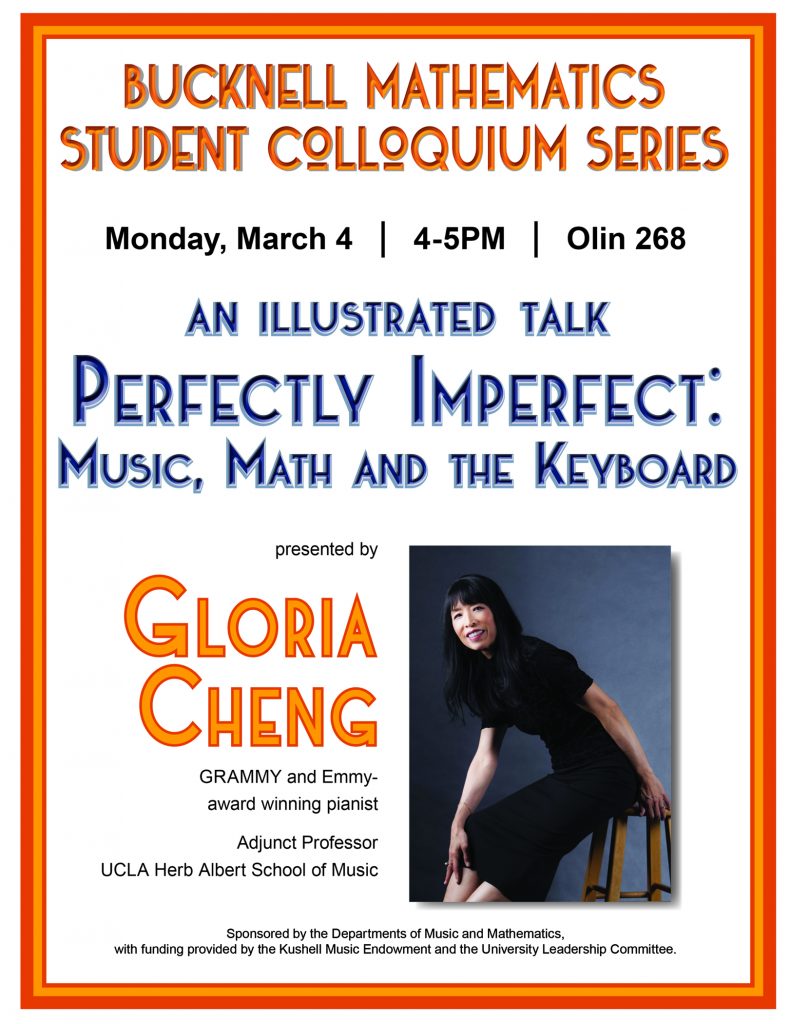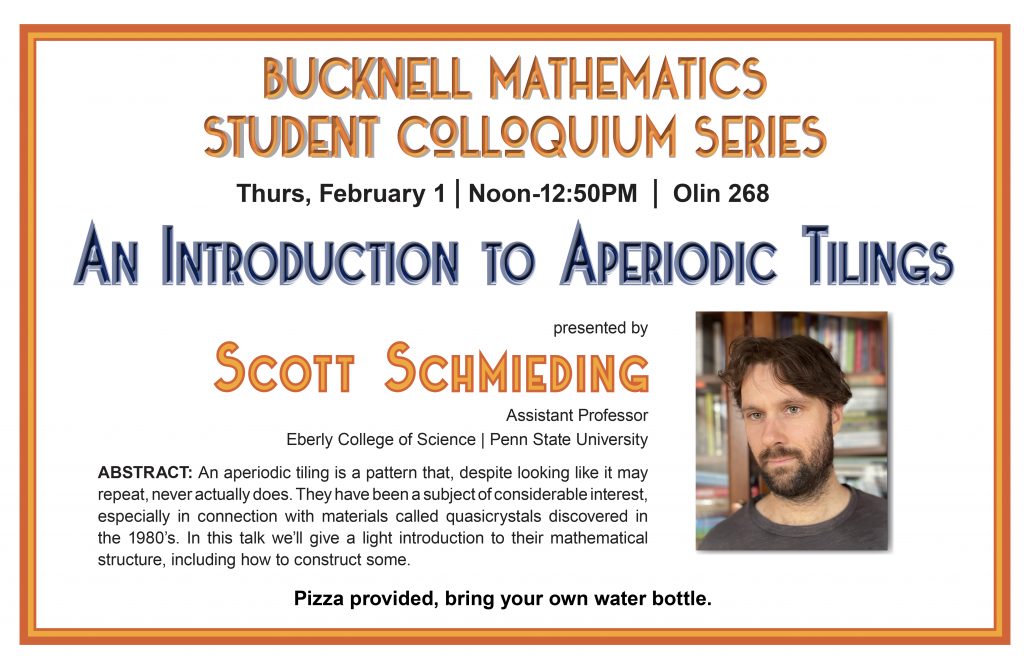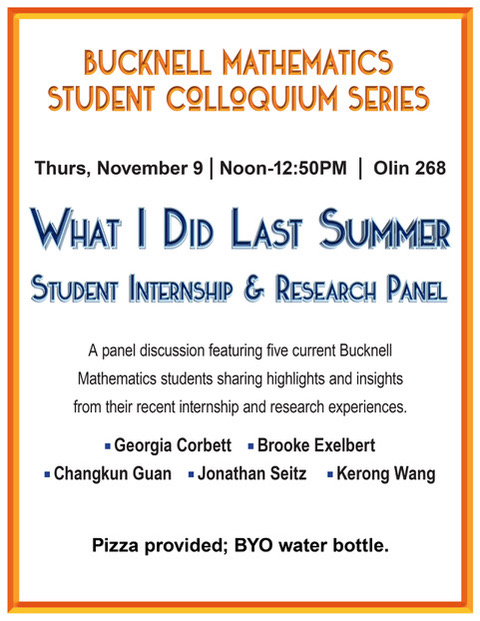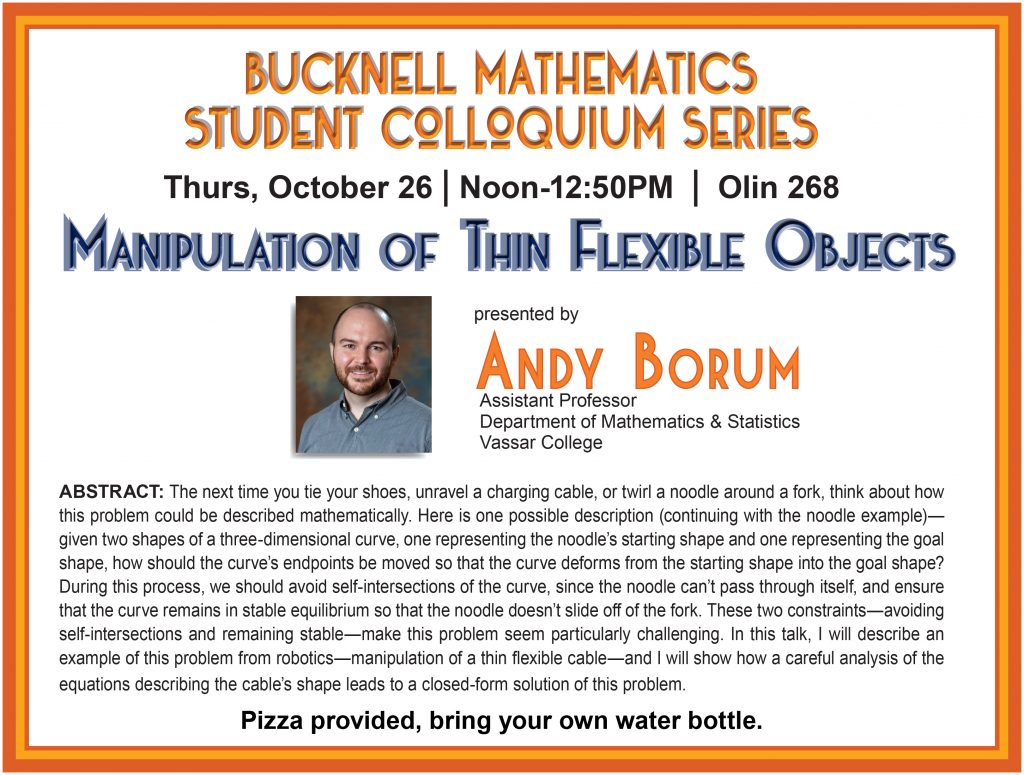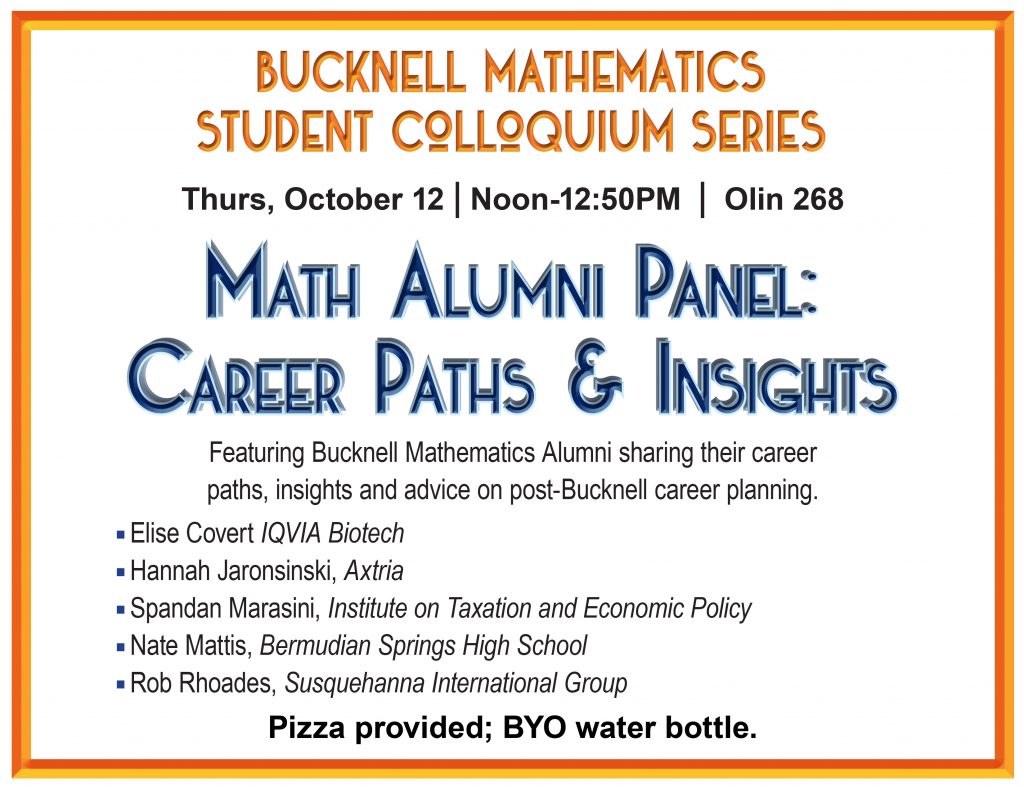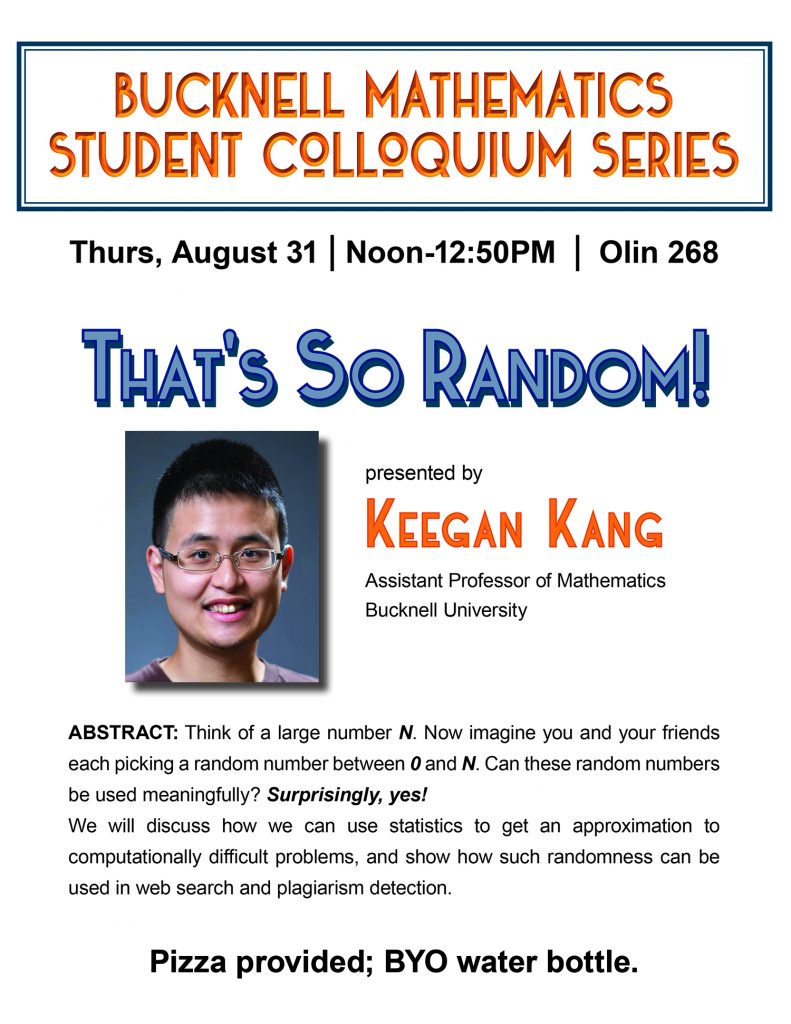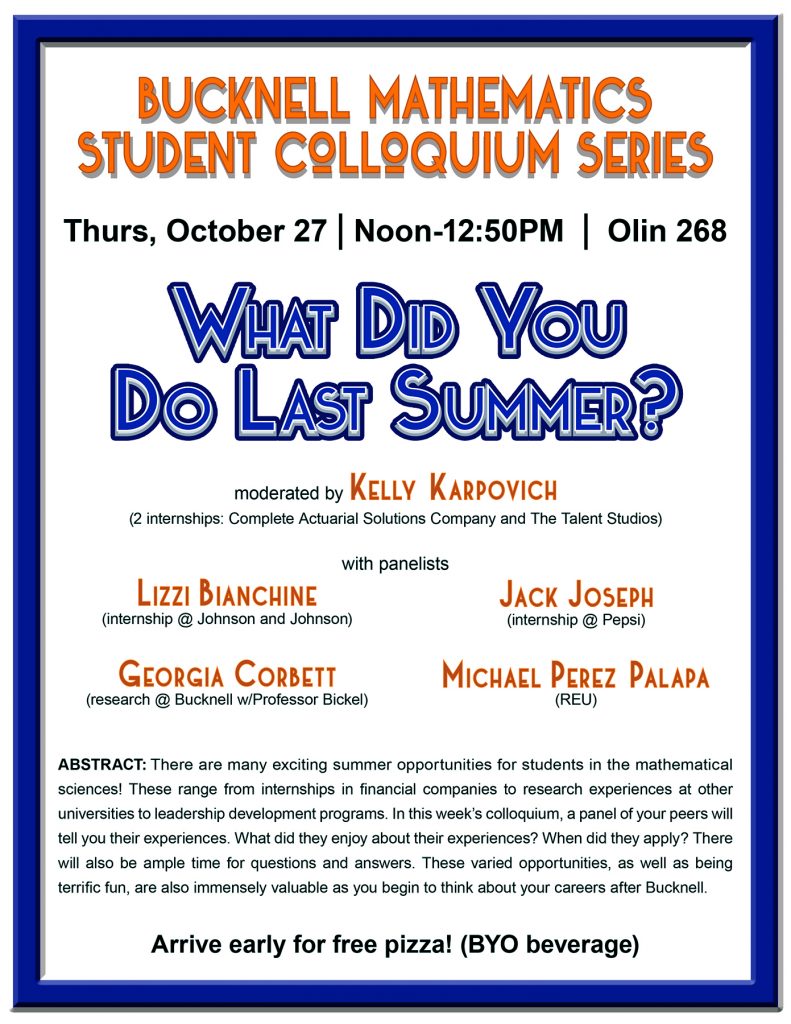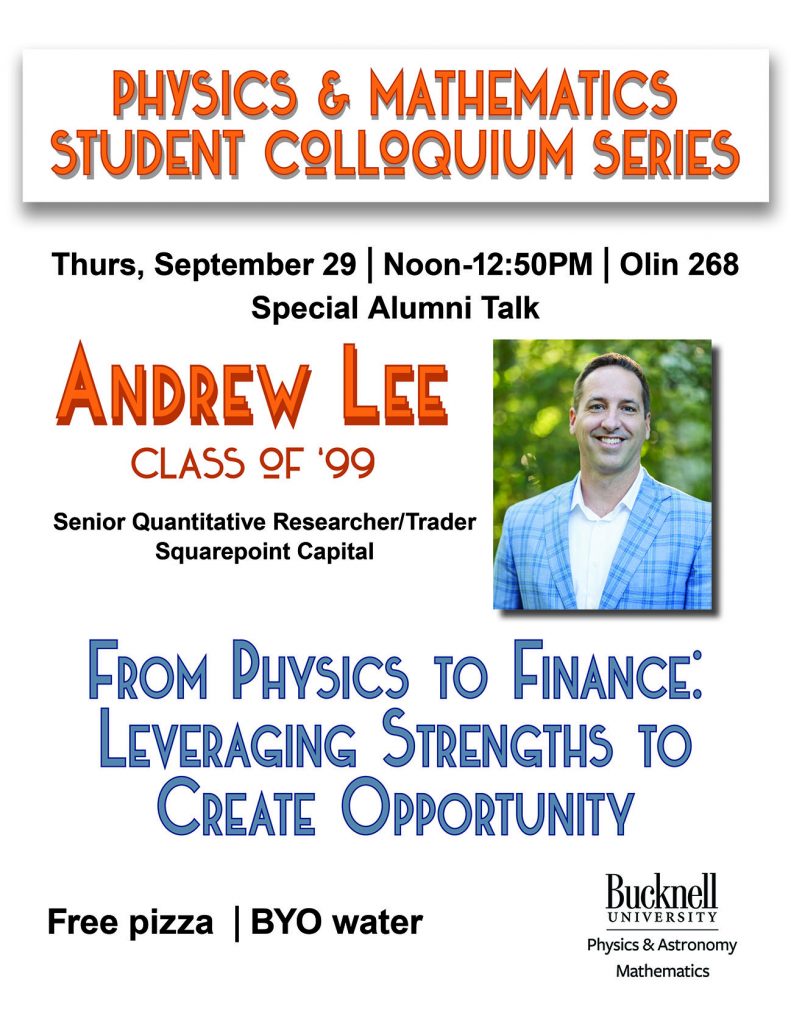Bucknell Mathematics Student Colloquium Series
Thurs. Mar. 21, 2024 | Noon-12:50PM | Olin 268
I Spy with my Untrained Eye
Presented by Sara Stoudt, Assistant Professor of Statistics, Bucknell University
ABSTRACT: Many ecological questions require hard-won data, but thanks to participation from community members on a variety of nature apps, there is more and more data available for a variety of species, across longer time scales and broader spatial extents. However, this data is collected in a less systematic way, so there are limitations for its use for statistical modeling. I’ll talk about finding creative ways to make this data usable for scientific research and what we learn about both the animals and the data collectors themselves through this process. I’ll share case studies on bird and butterfly data and talk about where we are headed next with this work.
